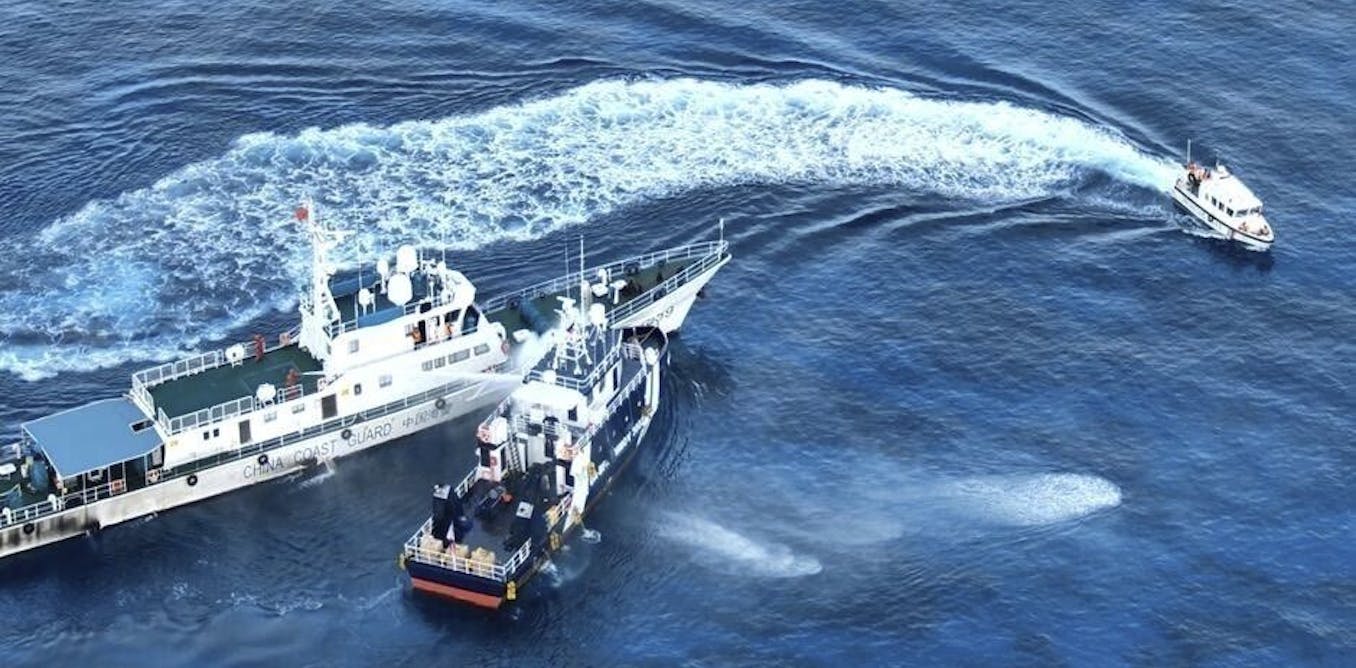Last week, Chinese coast guard vessels rammed and shot water cannon at Philippine ships in the South China Sea. The incident was well within the Philippines’ exclusive economic zone and was completely unprovoked.
It is the latest example of a sustained pattern of Chinese maritime coercion that has intensified over the past three years. Despite the growing frequency and sheer aggression of these tactics, international attention and official rebukes have noticeably waned in the past 12 months.
For Australia, a nation whose prosperity and security relies on maritime trade, there can be no room for complacency or desensitisation. China’s maritime aggression puts Australia at risk.
…
History teaches that once coercion goes unchecked, it tends to escalate. The incident last week is not an isolated provocation, but part of a continued deterioration of security in the waters around us.
Australia has both the right and the responsibility to challenge the normalisation of this kind of maritime aggression. We can push back by calling out each incident, continuing to deepen our regional partnerships, accelerating the development of our naval capabilities, and reinforcing international maritime law.
Our future prosperity, and the security of generations to come, depends on it.



Japan, a country of 80million in 1931invaded a weak China (circa 300m) which was at the tail end of it’s century of humiliation in which it had been beaten multiple times in wars against the European super powers of Britain, and then France, followed by defeat against Japan in 1895 (in which they ceded Korea - a nation of then 25m plusTaiwan (formosa) 8m).
The 1931 invasion of Manchuria sliced another 50m out of their population and was the launch pad for their ww2 empire.
Your characterisation of it as a tiny island against a massive foe was inaccurate for that time, but it is also not an equivalent for now.
Japan in early 20th C was a medium to large nation on the rise and industrialising. China was then a high population but low industry and poorly developed and poorly managed country which had been under attack from all sides for decades from multiple powerful nations.
https://en.wikipedia.org/wiki/Japanese_colonial_empire
https://en.wikipedia.org/wiki/Century_of_humiliation
It is utterly specious to compare the modern heavily industrialised China of the 21st century to the China that was invaded in 1937 by Japan.
The US & China are the two largest economies and the two largest militaries. The US is currently far stronger but the Russian Manchurian candidate in the White House is busily tearing that advantage down.
Under estimate them at your peril. If the democracies of Asia come together they can indeed defeat China if necessary, but don’t make the WW1 mistake of “all over by christmas” it will be a long and bitter war.